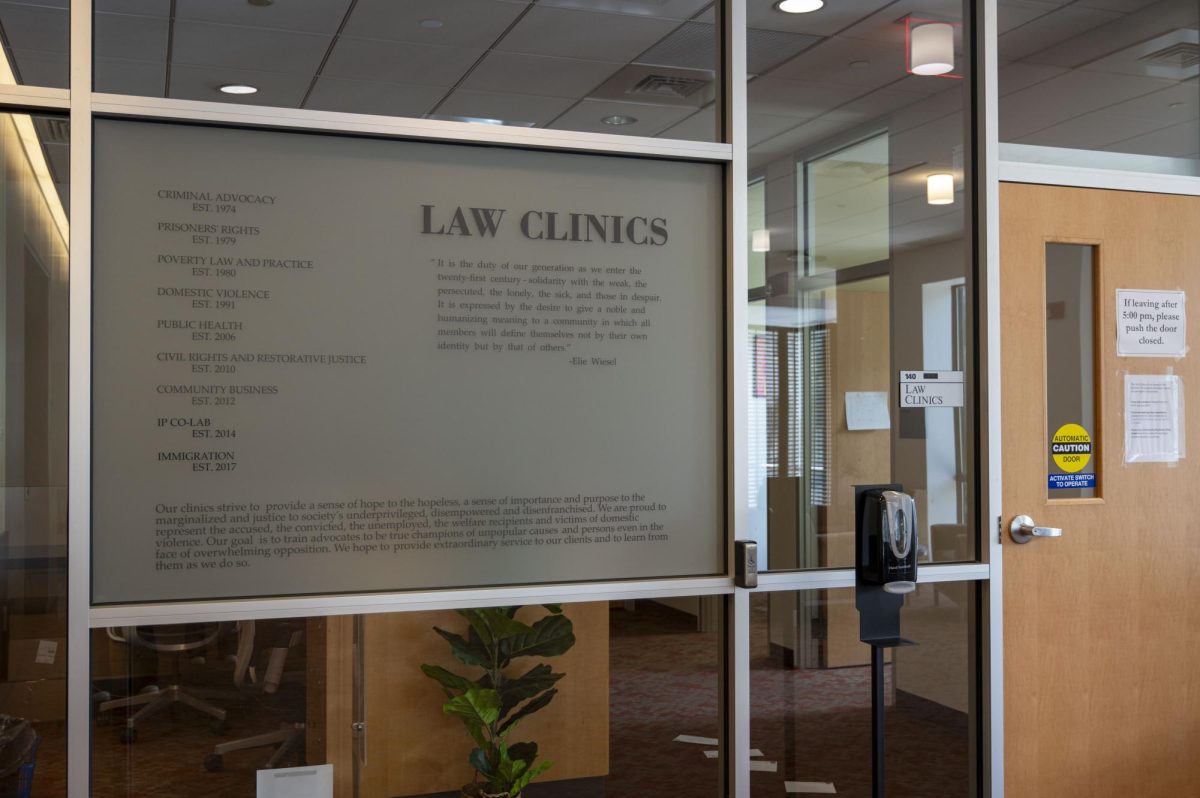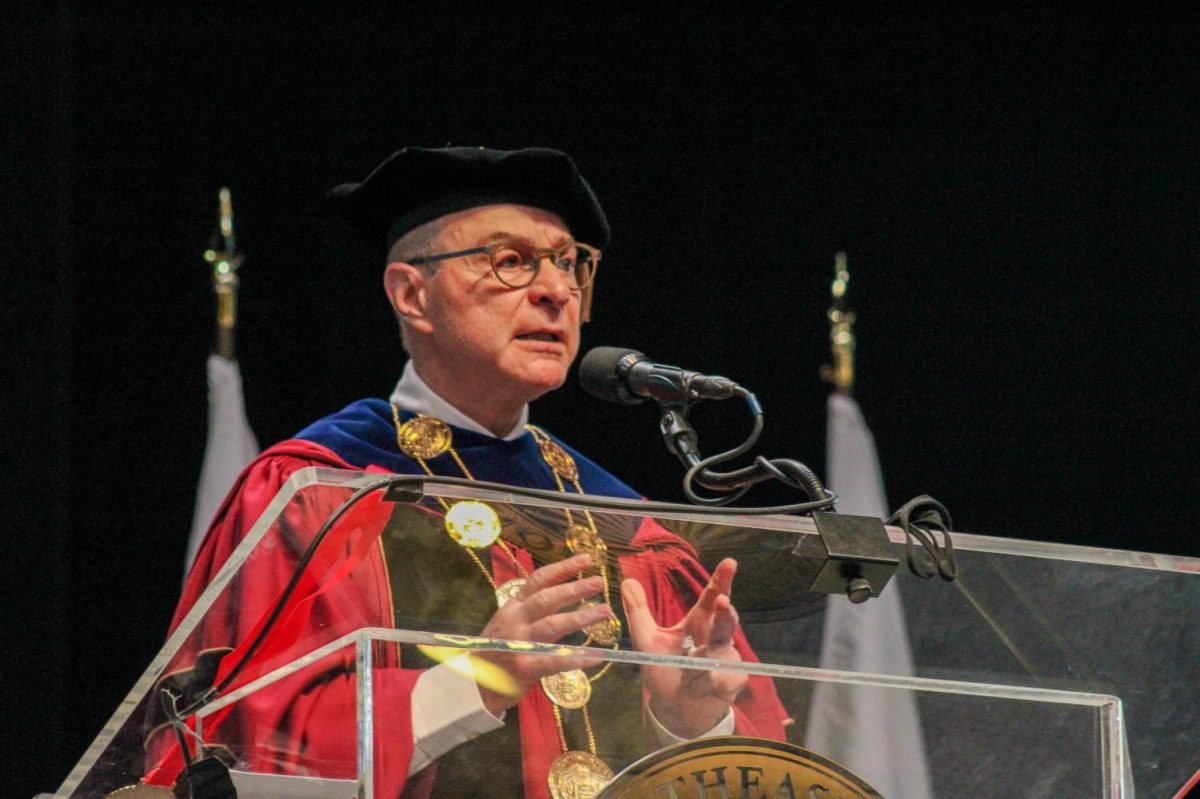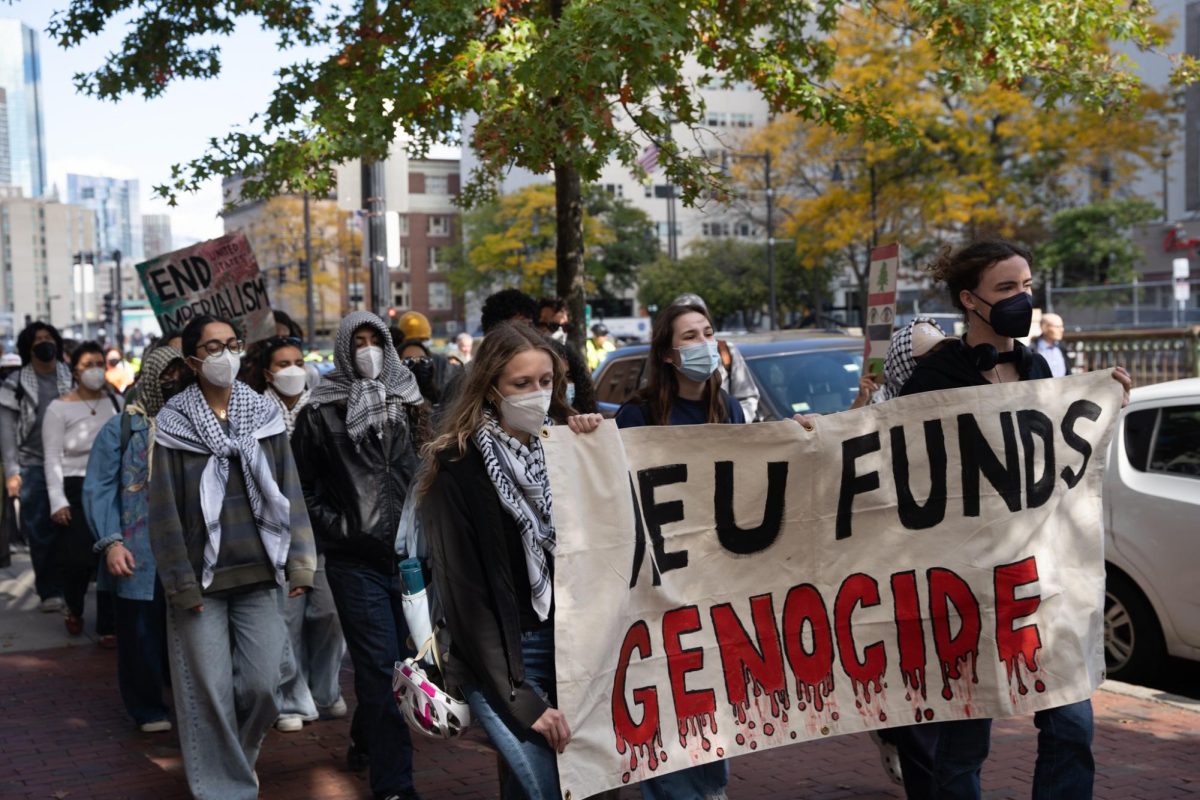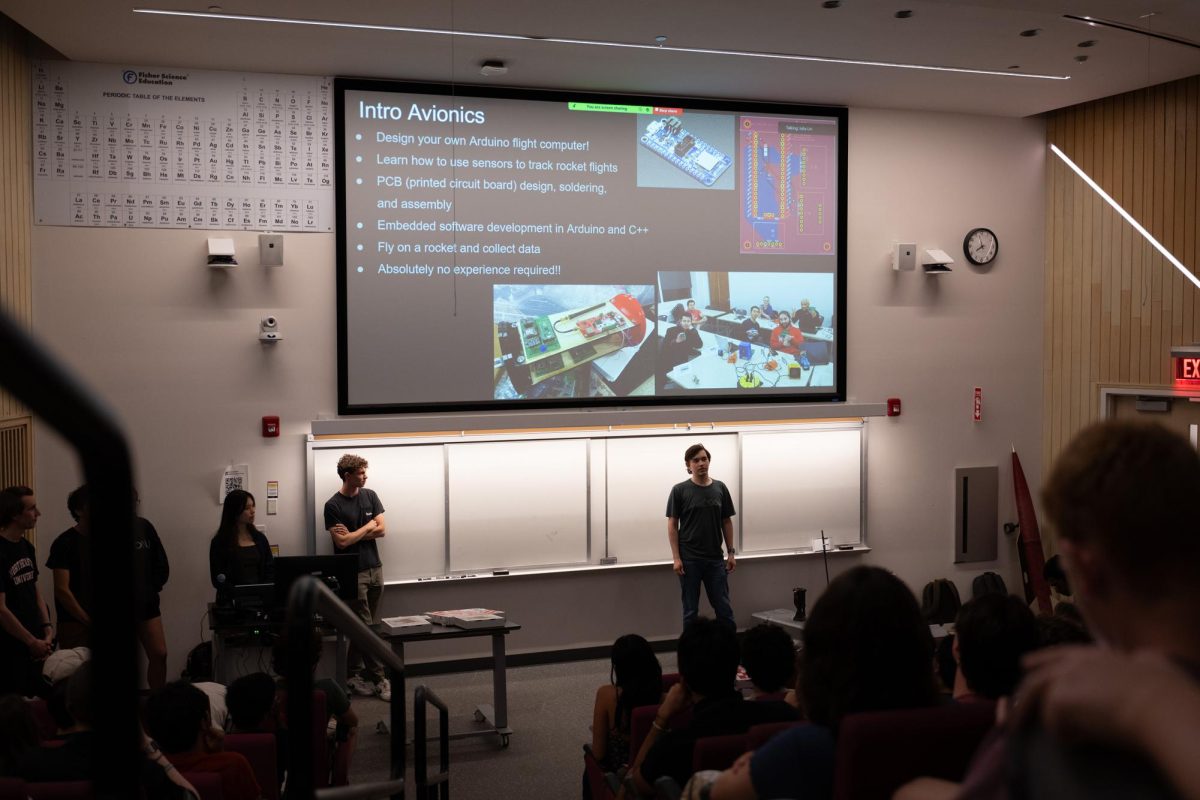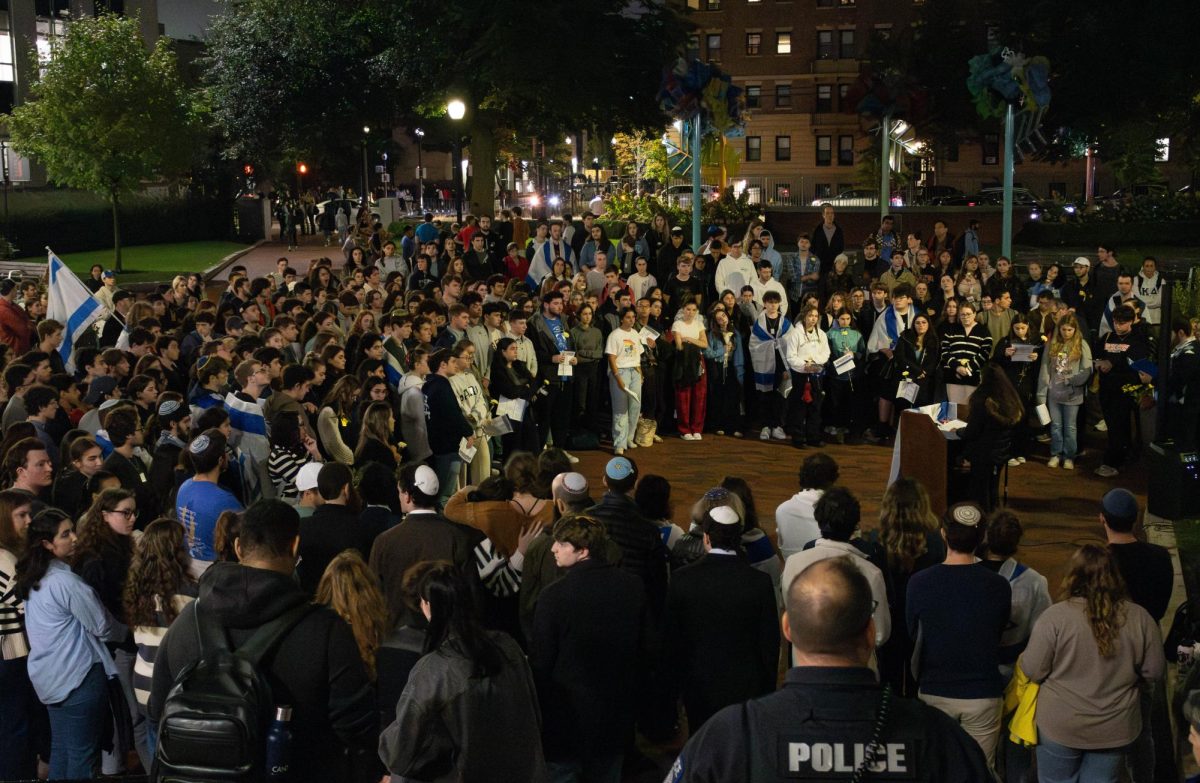Students were treated to a dose of satire sprinkled with tongue-in-cheek humor when “Accidental Death of an Anarchist” opened at the Studio Theatre in Ell Hall.
Originally written by Nobel Prize winner Dario Fo and first brought to the stage in the 1970s, the play centers around the investigation of the suspicious death of an anarchist during a police interrogation. Evolving with the times, “Anarchist” remains a poignant commentary on small and large scale politics and corruption.
Sponsored by the Center for the Arts and the theatre company My Fair Heathen, the version, directed by Associate Professor Janet Bobcean at the Studio Theatre, highlights current events. Among other ideas, it suggests the George Bush presidency and mainstream media are manipulating information being displayed to the public.
Del Lewis, who teaches advanced acting courses at Northeastern, is one of six faculty, alumni and current students performing in the play. Lewis said it is beneficial for students to attend the play because it calls attention to current issues in a civilized manner, without “going out and burning flags and things in the streets.”
“It illuminates for [students] these problems that we’re having about corruption and people using fear tactics and all that kind of stuff – they’re not new,” he said. “They happened back in the ’60s, they happened before that, and the lesson [in the play] really is that we don’t learn. We fall for it every time.”
Denise Carrington, staff assistant at the Center for the Arts, also said the issues in the play affect students.
“It’s in the news, it’s everywhere,” Carrington said. “As [students] become young adults, it’s affecting everything that they’re reading about and what they base their opinions on.”
Lewis said the play’s humor makes its content easier to digest without shying from the issues.
As opposed to textbooks, the high-energy play – which incorporates comic, drastic body movements and facial expressions – is a great way to communicate with the college generation, Carrington said.
“We want to create a dialogue between students, so I think this play does that,” Carrington said. “We try to do something that will stimulate dialogue between students and will create some sort of information so they can start talking about what’s going on politically and around them.



